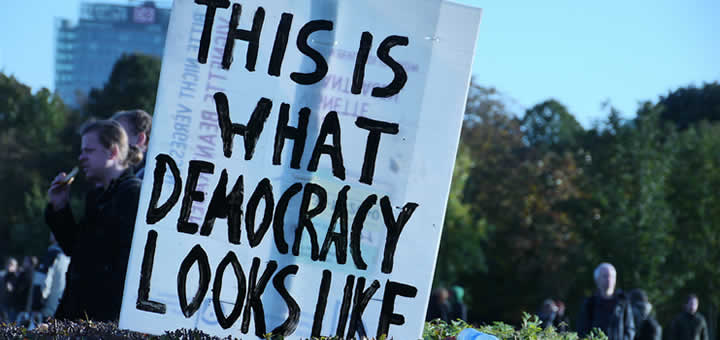Steve Hilton in his new book. And he’s right. All the more surprising when you consider that Hilton was himself an architect of much Conservative policy. But what this tells us is that, despite a few show projects around open government and open data, the real channels to power are closed to you and I. They are in fact only open – visible even – to a select few. Multinationals. Millionaire CEOs. A self-selecting coterie of politicians, journalists and assorted others. All of whom meet, eat and talk whilst the rest of us are left out in the cold. As Hilton observes, these are people who went to school together and send their children to those same schools. I’ve realised during my time in UK politics that what you see is rarely what you get and hardly ever is it where real power lies. Real power is deeper, more hidden and much more powerful than most of us could ever imagine But it’s not as simple as saying that ‘democracy is broken’. It is, but what are truly past their use-by-dates are our cultural models of power, leadership and privilege. These are inter-twined with all aspects of modern society and we can’t fix democracy unless we fix this blatant inequality. These redundant concepts of power represent a morally corrupt model of leadership and a culture that dehumanises us. It has led us to believe that we must climb this ladder, lead the pack and take that power for ourselves. That’s wrong. And this isn’t a problem of the right. Look at the Labour Party, electoral failure was a failure to support ‘aspiration’. Really? But what does this even mean? Where is the critical examination of how one person’s aspiration is another’s oppression? It’s obvious that Labour has become trapped in the illiberal narrative of neo-liberalism. This distorted narrative of greed is obvious too in the focus of the EU debate on what businesses want. The neoliberal mantra of individual advancement is exposed as a greedy clamour for power regardless of the cost that inflicts on others. It leads to self-centred, oppositional politics, not just between but within and beyond parties: it leads us to a politics of difference and destruction. And all that achieves is to keep the incumbent and powerful in place. How is that productive? How is that ‘aspirational’? We need a new democratic culture. A culture based on mutuality, common purpose and co-production – on shared values, shared value and fairness. But to do this we need a new kind of leadership, one that I call ‘grounded leadership’. Grounded leaders are the opinion formers, they are the trusted emissaries and intermediaries. They are members of the ecosystem in which they exert influence but are transparent in their role as facilitators and enablers. In other words, they are in it for the greater good not for personal power. And they are often the early adopters in the life cycle of change. Grounded leaders are not simply agents of change but able to drive transformative actions forward as effective arbiters. They are co-located participants in both space and place, adeptly embracing multiple communities. So, grounded leadership becomes about timely and temporal intervention; it becomes about time and place, not power and position. We step into these roles when it’s right and step back when the job is done, always open, transparent and accountable.]]>
